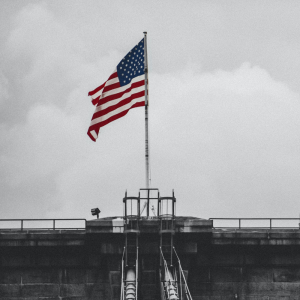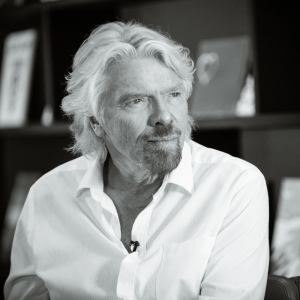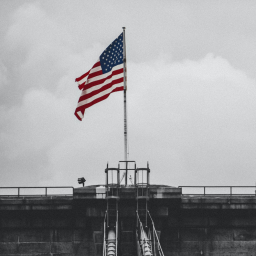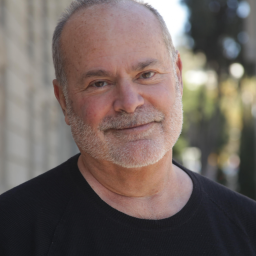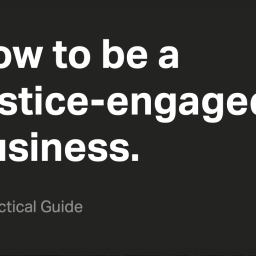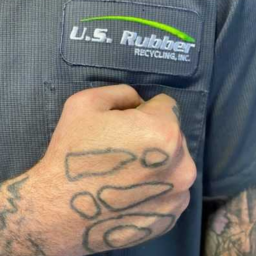In the run-up to Business Advocacy for Justice Reform, I wanted to reflect on the role of corporations when it comes to human rights and the justice system. While there is a long history of business advocacy in this area, the events of 2020 emphatically revealed that companies cannot remain silent on issues of systemic racism and social inequality. Of these issues, our criminal justice system presents the most glaring aberrations. Of these aberrations, none are more cruel and troubling than the death penalty. Identifying the problem is not enough however. Here I have attempted to not only summarise how broken our systems are, but also the concrete steps that business leaders can take to help fix them.
Last weekend marked the 50th anniversary of Milton Friedman’s notorious essay The Social Responsibility of Business is to Increase its Profits – where vehemently opined that a corporation’s only role was to make money for shareholders. This was challenged last year by the Business Roundtable, who declared a “fundamental commitment to all stakeholders” – including customers, employees, suppliers, communities, and shareholders. The statement was signed by 185 CEOs of major US corporations. For many it symbolised a moral revolution in capitalism – one that had been underway for quite some time.
The numbers support this. More than three quarters of consumers expect companies to positively impact society. 89% of Americans would switch brands to one associated with a good cause, and 91% expect businesses to address social and environmental issues. It’s not just consumer facing corporations who face scrutiny on this – 35% of employees are reconsidering their current job because their company is not doing enough to address social justice issues externally.
When the killing of George Floyd amplified the power built by the Black Lives Matter movement and triggered massive rebellions in response, it drove home what so many already knew. That the unfairness and inequality pervading the US justice system is the most important social issue this generation faces. As the uprisings increased, almost every major corporation immediately released a statement of support – even those which had never advocated for racial justice before.
Many were just as quick to criticise. Cries of “performative ally ship” echoed across social media. While it was obvious that people expected brands to stand up for what is right when it came to criminal justice and police brutality, there was rampant scepticism about commitment to real action. Businesses have to walk their talk, and follow-up laudable words with meaningful advocacy.
But can companies actually help fix broken justice systems? It’s undeniable that by using their voice, influence and leverage, businesses can have an enormous impact when it comes to policy. No constituency is more important to policymakers than investors and employers, especially after economic devastation of the coronavirus pandemic. The question isn’t whether businesses can create change. The question is on which issues and how authentically brands choose to focus attention and meaningful action.
There is so much that urgently needs fixing. Cash bail, mandatory minimum sentencing, juvenile sentencing – all embody the discrimination, ineffectiveness and cruelty that defines the U.S. justice system. But none more so than the death penalty.
President Donald Trump and Attorney General William Barr resumed federal executions this year, after a 17-year hiatus. This is despite the fact that violent crime has declined steeply in recent decades, along with support for capital punishment. Colorado voted to abolish earlier this year, joining 25 other states who have ended the death penalty or prohibit executions. According to a 2019 poll, the majority of Americans now favour life imprisonment for crimes such as murder. Disapproval is by no means limited to the US. Capital punishment is condemned around the world as a human rights violation, and 70% of countries have abandoned it.
It isn’t just that it involves killing people. The more people learn about the death penalty, the less they like it. Innocent people have been executed – for every 9 people executed in America, one person on death row has been exonerated. Children have been executed. The death penalty’s application has been repeatedly found to be racist, and nationally the Black death row population is 3 times their proportion of the general population.
It’s also completely ineffective as a deterrent. It doesn’t make communities safer. States with the death penalty have higher murder rates than those without it. There has been no subsequent spike in murder rates in the states that have abolished it. It also costs millions of dollars a year – some have placed the cost at $272 million per execution – wasting public funds that are desperately needed elsewhere.
But what steps can companies take? For some the answer is obvious. Over the last decade, pharmaceutical companies successfully slowed the rate of executions by banning the use of their drugs in executions in the United States. However, for many businesses the practical ways they can engage aren’t quite as clear, particularly if their product or supply chain has no interaction with justice system apparatus.
Some have led from the front and spoken out at the top. Ben & Jerry’s CEO has spoken out about the urgent need to end mass incarceration. Virgin founder Richard Branson has called repeatedly and passionately for abolition. We live in an era of rockstar CEOs and when they speak, lawmakers listen.
In May 2017, Lush launched a customer-facing campaign in 200 US shops in partnership along with the National Coalition to Abolish the Death Penalty. The 10-day campaign petitioned legislators using signatures we collected in store and online and raised over $130,000 for abolition-focused organisations through the sale of the 31 States Bath Bomb. We also produced the short film Exonerated with Kwame Ajamu, who spent 27 years on death row for a crime he did not commit. I will in fact be speaking alongside Kwame at the upcoming Businesses for Justice Reform event, which you can register for here.
Others have used their leverage more directly. In 2019 the $36 billion French state pension plan and ESG funds blacklisted the US treasuries market because the death penalty is allowed in some states. Every business has the voice and the tools to make a difference, and the Responsible Business Initiative for Justice has produced this 8-step toolkit outlining exactly what those are.
People demand more than profits from their companies. Even if it were true 50 years ago, when Friedman wrote his essay, events of the past year have revealed the sea change. Businesses are expected to stand up for what’s right, and nowhere is this truer than with our justice system and the death penalty. But they can’t just talk. People’s lives depend on it.
Register here to join us as we bring together justice-engaged business leaders and individuals who have been directly affected by the criminal justice system for a digital event on the 29th September 2020.
The full version of this op-ed first appeared on TriplePundit, and is available at: https://www.triplepundit.com/story/2020/businesses-criminal-justice-system/705596.



